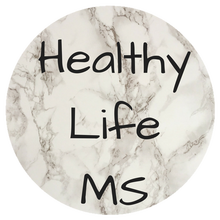Developed by:
Dr Roy Swank
Developed:
1948
Premise of diet:
Very low fat diet based on the hypothesised association between dietary fat and MS.
Dr Roy Swank
Developed:
1948
Premise of diet:
Very low fat diet based on the hypothesised association between dietary fat and MS.
Structure of diet:
The SWANK diet is a phased very low fat diet which excludes red meat and pork for the first year and gradually reintroduces it in the second year; eliminates all processed foods containing saturated fat and/or hydrogenated oils and excluded egg yolks. It encourages snacking on nuts and seeds (noted as good sources of natural oils) and encourages unlimited fruits and vegetables.
The SWANK diet is a phased very low fat diet which excludes red meat and pork for the first year and gradually reintroduces it in the second year; eliminates all processed foods containing saturated fat and/or hydrogenated oils and excluded egg yolks. It encourages snacking on nuts and seeds (noted as good sources of natural oils) and encourages unlimited fruits and vegetables.
Allowing:
- Unlimited fruits and vegetables
- White meat, poultry and white fish; limiting fatty fish to 50g per day
- Dairy products containing 1% or less butterfat
- Egg whites
- Wholegrain breads, rice and pasta
- Saturated fats: no more than 15g per day
- Unsaturated fats: limited to 20-50g per day
Excluding:
- Processed foods containing saturated fat and/or hydrogenated oils
- No red meat for the first year, reintroducing 3oz once per week in second year
Recommending:
- Daily multivitamin and mineral supplement
- Cod liver oil (1 tsp or equivalent in capsules) per day
The evidence:
Research into this diet has not shown that it works, but the studies were not generally well designed; some people find this diet can work well for them, others report no difference. From a general health perspective it is widely accepted that
that reducing the amount of saturated fat in the diet, increasing the amount of fruits and vegetables and switching to wholegrain starchy carbohydrate products is good health advice. Following a similar diet would not generally considered bad for you but there are some points to be aware of.
Research into this diet has not shown that it works, but the studies were not generally well designed; some people find this diet can work well for them, others report no difference. From a general health perspective it is widely accepted that
that reducing the amount of saturated fat in the diet, increasing the amount of fruits and vegetables and switching to wholegrain starchy carbohydrate products is good health advice. Following a similar diet would not generally considered bad for you but there are some points to be aware of.
Cautions:
- Cutting out meat and most fish to reduce saturated fat intake may mean you are not getting enough protein - alternative plant-based sources include beans and pulses
- Cod liver oil has a blood thinking effect so should not be taken with aspirin or anticoagulant medications such as warfarin or if you suffer from a bleeding disorder
- Cod liver oil contains high levels of vitamin A so be mindful of taking this if Vitamin A is also include within your multivitamin. You should consult your GP before taking cod liver oil.
- This diet can be low in energy which make you lose weight; be mindful if you have high energy needs or are already underweight.
Sources:
MS Society (2016) Diet and Nutrition booklet
MS Trust (2014) Diet Factsheet
SWANK MS Foundation (2015) www.swankmsdiet.org/the-diet/
MS Society (2016) Diet and Nutrition booklet
MS Trust (2014) Diet Factsheet
SWANK MS Foundation (2015) www.swankmsdiet.org/the-diet/
